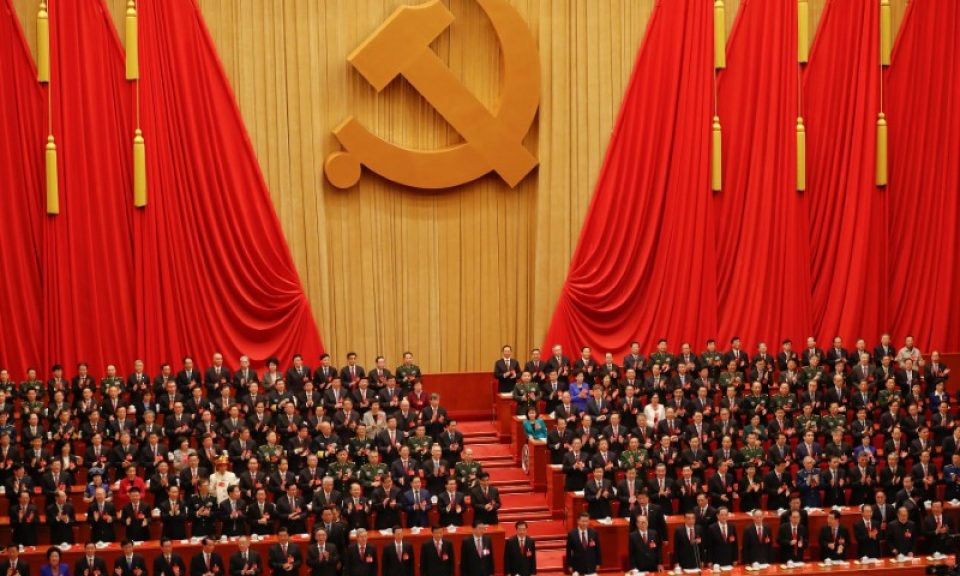President Xi Jinping’s talk of giving market forces a “decisive role” is belied by his war on the internet and mainland gateways to information flows.

Déjà vu was in the air in Washington last weekend as the keepers of the global economy convened for the annual International Monetary Fund confab.
Twenty years ago, at the same event, officials obsessed over Japan’s corporate debt bubble. It was seen as a clear and present danger to the banking system of what was then Asia’s biggest economy – and global stability. Officials urged Tokyo to get its house in order for everyone’s sake.
China now finds itself in a similarly uncomfortable spotlight.
The good news is that China’s Central Bank Governor Zhou Xiaochuan is among the most vocal economic Cassandras. “We need to pay further effort to deleveraging and strengthen policy for financial stability,” Zhou said at the IMF gathering.
The bad news is that Zhou’s real challenge is convincing a political establishment back home to act – and to stop masking the magnitude of the problem.
Headlines from 19th National Congress unfolding in Beijing this week focus on Xi Jinping’s vision for a “new era” in the next five years of his presidency. What’s really happening, though, is an elaborate campaign to hide the financial risks that worry Zhou.
President Xi’s big talk of giving market forces a “decisive role” is belied by his intensifying war on the global media, the internet and mainland gateways to information flows.
In 1997, when the IMF’s annual meeting was held in Hong Kong, the conventional wisdom was that the Communist Party’s control-freak ways, then under the leadership of Jiang Zemin, were no match for cyberspace.
That same year, Jiang even did a live press conference with then-U.S. President Bill Clinton.
Instead of a new era, Beijing bent cyberspace to its will.
Instead of a new era, Beijing bent cyberspace to its will.
Jiang’s successor, Hu Jintao, created China’s “great firewall” of censorship. Since 2012, Xi has gone further, systematically clamping down on information flows and clamping down on Hong Kong, too.
Xi directed regulators to bigfoot mainland internet leaders like Baidu, Tencent, and Weibo under the auspices of public security and social order, whatever that means. Now, he’s going so far as possibly taking government stakes in innovators that until recently were the pride of Beijing.
“Major government stakes and the potential for interference in ostensibly private company business operations would complicate Chinese tech company access to financial markets and their ability conduct mergers and acquisitions overseas, hampering their international expansion,” Michael Hirson and Kelsey Broderick of Eurasia Group write in a research note.
The problem is much bigger, though.
We can debate whether we’re witnessing “digital Leninism,” as German political scientist Sebastian Heilmann puts it, in Xi’s China or the Putinization of China.
We can debate whether we’re witnessing “digital Leninism,” as German political scientist Sebastian Heilmann puts it, in Xi’s China or the Putinization of China.
But what’s afoot will make it harder for investors, businesspeople and foreign governments to know where the real risks lie in the biggest trading nation.
As Washington-based Sinologist Sourabh Gupta asked in a South China Morning Post column: “Will Xi become the greatest consolidator of Deng’s political legacy? Or will he set in motion its unravelling?” The answer is at least five years away, when Xi wraps up his second term (assuming he doesn’t, Vladimir Putin-style, serve a third).
But Xi’s efforts to use the internet and big data to control the domestic narrative make China less transparent, effectively turning Asia’s biggest economy into more of a Black Box. It means that when China’s debt reckoning arrives, it may come out of nowhere for investors and governments alike.
Zhou’s concerns about debt may focus on corporate IOUs, but Beijing also faces runaway local-government debt – which in recent years topped Germany’s annual gross domestic product – and a shadow banking system that generated tens of trillions of dollars of credit since the 2008 global crisis.
The other problem: Zhou, a vital pro-transparency reformer, turns 70 in January and is expected to retire. There’s no guarantee the next People’s Bank of China leader will provide a voice of dissent as Xi drags Beijing backwards.
There’s a gaping disconnect between Xi’s designs on China having a bigger global footprint while obscuring what’s afoot in an economy on what the world depends.
There’s no finessing the damage done by this self-inflicted headwind. Xi’s new era already sounds like a contradiction in terms – and its own source of déjà vu.



The USSR collapsed and the same may happen to China. Socialism destroy men for the benefit of a few.